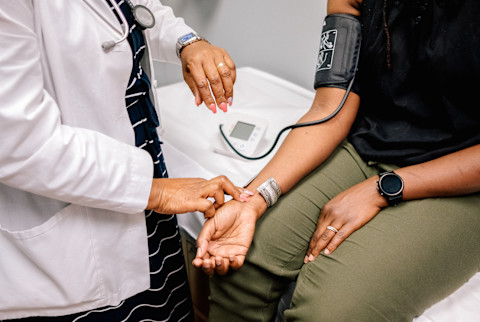Study Shows Vitamin D Slashes The Risk Of A Second Heart Attack

In the United States, someone has a heart attack nearly every 40 seconds1. That’s over 800,000 individuals a year, 200,000 of which are a person’s second heart attack. That’s right, the risk of having a second heart attack after a first one is significant. And researchers are particularly interested in ways to mitigate a recurrent event.
Results of a new study reveal that targeted supplementation with vitamin D may be a simple and effective solution. Here’s what you need to know.
About the study
Researchers followed 630 people (with an average age of 62 years) who’d recently had a heart attack. Participants were randomly assigned to either standard care or a targeted vitamin D3 supplementation plan that aimed to raise blood levels of vitamin D to above 40 ng/mL.
For context, vitamin D sufficiency starts at 30 ng/mL2. While some experts consider optimal blood levels of vitamin D to be 50 ng/mL, 40 is still well above the generic sufficiency threshold, especially considering 43% of U.S. adults have insufficient vitamin D levels to begin with.
Instead of giving everyone the same dose, researchers personalized the amount of vitamin D3 each participant took by checking blood levels regularly and adjusting dosing as needed. Most participants needed around 5,000 IU of vitamin D3 per day to reach the target range.
The objective was to see if improving participants’ vitamin D status impacted cardiovascular risk (including heart attack, heart failure, hospitalizations, or stroke).
Higher-dose vitamin D supplements reduced heart disease risk
Over the course of follow-up, researchers found no difference in the overall rate of major cardiovascular events (a composite of heart attack, stroke, heart failure hospitalization, or death). However, they did uncover a striking benefit when looking specifically at recurrent heart attacks:
Participants who received personalized vitamin D3 supplementation had about a 50% lower risk of experiencing another heart attack.
“Previous studies just gave patients supplementation without regularly checking blood levels of vitamin D to determine what supplementation achieved,” said principal investigator Heidi May, Ph.D., in a statement. “With more targeted treatment, when we checked exactly how supplementation was working and made adjustments, we found that patients had their risk of another heart attack cut in half.”
It’s important to note that these results were presented on Nov. 9 at the 2025 American Heart Association Scientific Sessions in New Orleans.This study has not been peer-reviewed or published yet.
The role of vitamin D in heart health
Vitamin D is best known for supporting bone and immune health, but it also plays a role in cardiovascular function. Vitamin D also helps regulate inflammation, support healthy blood vessel function, and may influence blood pressure and glucose metabolism. All of which are factors that affect heart health.
RELATED READ: The Best At-Home Vitamin D Blood Tests
How to supplement with vitamin D
Raising vitamin D levels is no easy task. For many, it’s near impossible to get enough of the vitamin from food or sunshine alone to go from insufficient to optimal vitamin D levels.
That’s why supplements are so helpful. When looking for a supplement, always opt for vitamin D3 over vitamin D2 (here’s why), make sure it’s a relevant dose, and choose one that’s optimized for absorption.
Here are our expert-approved picks for the best vitamin D supplements (with our top choice containing this 5,000 IU dose).
RELATED READ: How To Get A Vitamin D Blood Test Covered By Insurance
The takeaway
This is one of the first large studies to demonstrate that a targeted approach to vitamin D supplementation can significantly reduce the risk of a second heart attack. These early findings are promising and highlight the importance of personalized care, particularly for nutrients like vitamin D, where individual needs vary.
For those who are at high risk of a heart attack and anyone wanting to improve your heart health, make sure you’re regular (at least annual) vitamin D blood tests and appropriately supplementing.
